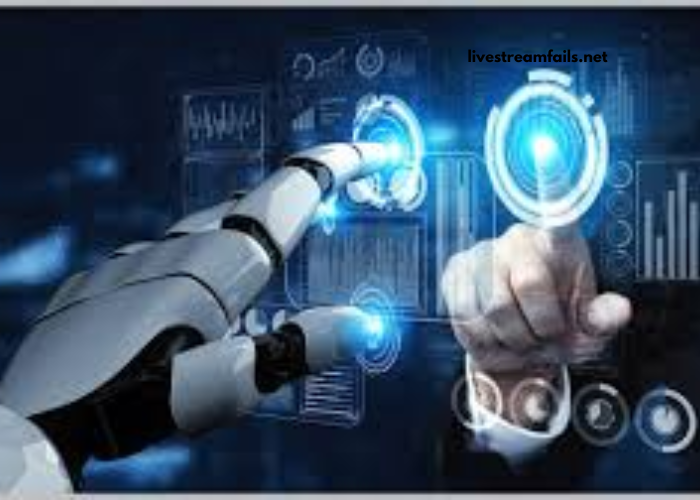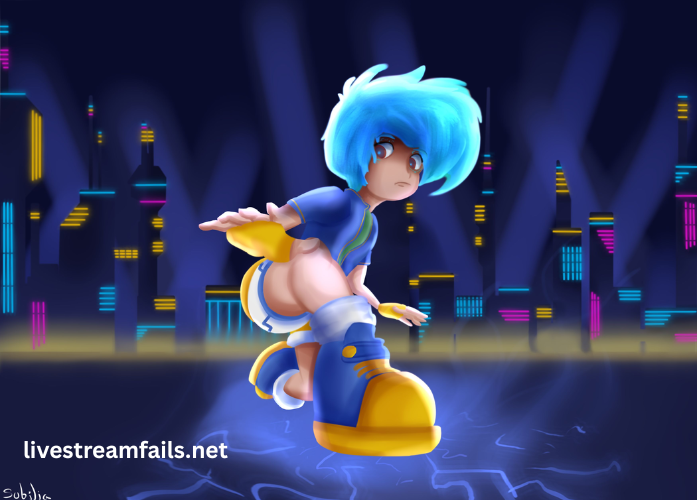In today’s fast-paced world, technology plays a pivotal role in shaping every aspect of our lives. From communication and healthcare to transportation and education, the advancements in technology are revolutionizing industries, improving efficiency, and creating new possibilities. As we look toward the future, the constant evolution of cutting-edge technologies is poised to make tomorrow smarter, more connected, and more sustainable.
In this article, we will delve into the innovative technologies that are setting the stage for a smarter tomorrow, focusing on Artificial Intelligence (AI), the Internet of Things (IoT), Quantum Computing, Blockchain, and 5G. We will explore how these technologies are transforming various sectors and shaping the future.
Artificial Intelligence: The Brain Behind Tomorrow’s Innovation
Artificial Intelligence (AI) is one of the most exciting technological advancements of the 21st century. It is designed to simulate human intelligence and improve decision-making processes. AI encompasses various fields such as machine learning, deep learning, and natural language processing (NLP). These technologies enable computers to learn from experience, adapt to new inputs, and perform tasks that traditionally required human intelligence.
How AI is Changing Industries
AI is already making a significant impact in various industries. In healthcare, AI algorithms can analyze medical data, assist in diagnosing diseases, and even predict potential health risks. In business, AI-driven chatbots are enhancing customer service by providing instant responses and handling customer queries effectively. In transportation, autonomous vehicles powered by AI are revolutionizing the way we travel, promising safer roads and more efficient traffic management.
Moreover, AI is enabling automation in manufacturing, reducing the need for human labor in repetitive tasks and improving production efficiency. With AI’s potential to drive innovation and transform industries, it is clear that this technology will be a cornerstone of a smarter tomorrow.
The Internet of Things (IoT): A World of Connected Devices
The Internet of Things (IoT) refers to the network of physical devices, vehicles, appliances, and other objects embedded with sensors, software, and connectivity that allow them to collect and exchange data. IoT is making the world more interconnected by providing real-time data and insights that can improve decision-making and enhance convenience.
How IoT is Shaping the Future
IoT is transforming various sectors, particularly in smart homes, healthcare, and agriculture. In smart homes, IoT-enabled devices such as smart thermostats, lights, and security systems allow users to control their environment remotely, enhancing convenience and energy efficiency. In healthcare, wearable devices track patient vital signs and send real-time data to healthcare providers, enabling proactive health management.
In agriculture, IoT sensors help monitor soil conditions, track crop growth, and optimize irrigation systems, leading to better yields and more sustainable farming practices. As IoT devices become more widespread, the possibilities for improving everyday life are endless. This technology is driving the creation of smart cities, where everything from traffic lights to waste management systems is connected to a central network, leading to more efficient urban living.
Quantum Computing: Unlocking New Frontiers in Computing Power
Quantum computing is one of the most revolutionary fields in technology. Unlike classical computers, which process information in binary (0s and 1s), quantum computers use quantum bits or qubits, which can represent both 0 and 1 simultaneously. This unique property allows quantum computers to perform certain types of computations exponentially faster than classical computers.
The Potential of Quantum Computing
Quantum computing holds the promise of solving complex problems that are currently beyond the capabilities of traditional computers. For instance, quantum computers could revolutionize industries like pharmaceuticals, materials science, and cryptography by enabling faster simulations, improving drug discovery processes, and creating more secure encryption methods.
In finance, quantum computing could optimize portfolio management, improve risk assessments, and enhance trading algorithms. Despite being in its early stages, quantum computing is poised to play a crucial role in driving innovation and solving some of the world’s most pressing problems in the future.
Blockchain Technology: Securing the Future with Decentralized Systems
Blockchain technology, often associated with cryptocurrencies like Bitcoin, is a decentralized ledger system that records transactions across multiple computers in a way that ensures data integrity, transparency, and security. Each transaction or piece of data is stored in a “block” and linked to the previous block, creating an unalterable chain of records.
Blockchain’s Potential Across Sectors
Blockchain technology is revolutionizing industries by offering more secure and efficient ways of conducting transactions and managing data. In finance, blockchain enables secure, transparent, and faster transactions, reducing the reliance on intermediaries like banks. It also offers lower transaction fees, which can have a significant impact on cross-border payments.
In supply chain management, blockchain can be used to track the movement of goods from manufacturer to consumer, ensuring transparency, reducing fraud, and improving efficiency. In healthcare, blockchain can securely store and share patient records, making it easier for healthcare providers to access accurate and up-to-date information, leading to better patient outcomes.
The potential of blockchain extends far beyond its current use in cryptocurrencies, and as the technology matures, its applications will likely expand to other industries, making it an integral part of the future.
5G Technology: The Backbone of a Smarter, More Connected World
5G, the fifth generation of mobile network technology, promises to deliver faster speeds, lower latency, and greater capacity than its predecessors. 5G networks are designed to support the growing demand for data and connectivity, enabling innovations in various sectors, including IoT, autonomous vehicles, and augmented reality (AR).
The Impact of 5G on Technology and Society
5G will be the backbone of many cutting-edge technologies, including the IoT, smart cities, and connected devices. With faster internet speeds and lower latency, 5G will enable real-time communication between devices, facilitating the growth of smart homes, smart cities, and autonomous transportation systems.
In healthcare, 5G will enable remote surgeries and real-time monitoring of patients through connected devices, improving healthcare access and quality. In entertainment, 5G will enhance the experience of virtual and augmented reality applications, offering immersive and interactive content. As 5G networks are rolled out globally, they will serve as a catalyst for the continued growth and development of other cutting-edge technologies, creating a smarter, more connected world.
Sustainability and Technology: A Smarter Tomorrow for the Planet
As technology continues to evolve, it is essential to consider its impact on the environment. The future of technology is not only about innovation but also about sustainability. Many cutting-edge technologies are designed to address environmental challenges, reduce carbon footprints, and create sustainable solutions for a smarter tomorrow.
The Role of Technology in Sustainable Development
Renewable energy technologies, such as solar power, wind energy, and energy storage systems, are becoming more advanced, efficient, and cost-effective. These technologies are helping reduce dependence on fossil fuels and mitigate the effects of climate change. Smart grids, powered by AI and IoT, optimize energy consumption, making power distribution more efficient and reducing waste.
Additionally, advancements in agriculture, such as precision farming enabled by IoT and AI, are helping optimize resource usage and reduce environmental impact. By integrating technology with sustainability efforts, we can work toward creating a smarter, greener tomorrow for future generations.
Conclusion: Embracing the Future of Cutting-Edge Technology
The rapid advancements in technology are paving the way for a smarter tomorrow. From artificial intelligence and the Internet of Things to quantum computing, blockchain, and 5G, the future holds limitless possibilities for transforming industries, improving efficiency, and addressing global challenges.
As we continue to innovate and integrate these cutting-edge technologies, it is essential to consider the ethical implications and ensure that these advancements contribute to a more equitable, sustainable, and connected world. The smarter tomorrow we envision is within reach, and by embracing these technologies, we can create a brighter, more prosperous future for all.




